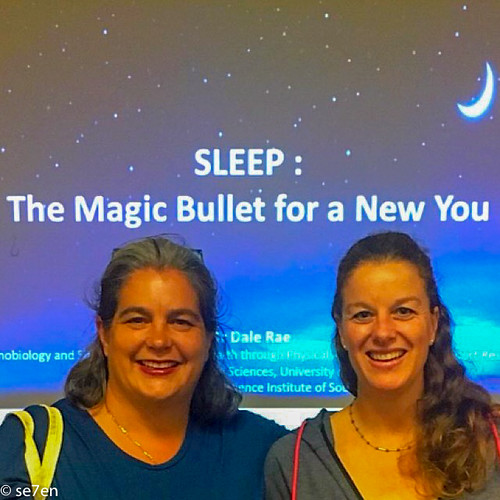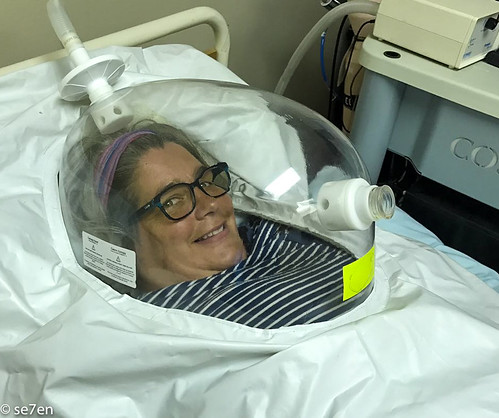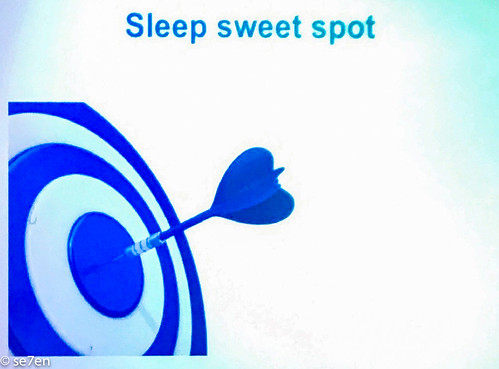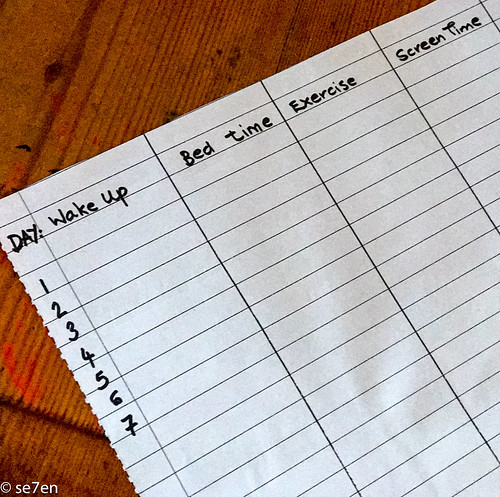Last week was World Sleep Day… there is a whole day devoted to sleep because it is absolutely critical to our health, except we don’t take to much notice of it. Since I started my journey back to Health with Sport Science I have become an advocate for sleep. You can read about my sleep journey here. I have a feeling that if people knew how critical sleep was to their health and well-being that we would all work a lot harder on it. That being said, sleep continues to be somewhat illusive.

I do sleep less than I need to sleep on week nights and I do catch up on weekends… I would love to be more consistent and I am working on it continuously. It is my life-atitude of “just one more thing,” that works very well in every aspect of my life, except getting to bed timeously. That being said, I have committed myself to learning more about sleep at every possible opportunity… know your enemy and all that. This past week at the Sport Science Institute they celebrated World Sleep Day with a Sleep Day packed with talks… and I attended a talk by Sleep Expert Dr. Dale Rae.
Her opening line: lack of sleep or fatigue is a far bigger problem than we think, and driving fatigued is a far more prevalent problem than driving under the influence of alcohol, just about says it all. Honestly, I don’t think I know many adults that get their full quota of sleep and that is an average of about 7 hours sleep a night. I have a feeling folk just don’t understand the importance of sleep. Let’s be honest all we ever hear about healthy living is exercise and diet and that is most likely because marketers haven’t yet found a way to make enormous amounts of money from people sleeping. They are getting there with sleep tracking devices and so on, but just not on the same scale as selling fitness gear or fad diet foods and slimming shakes.
Sleep Talk by Dr. Dale Rae
- What is Sleep? Sleep is a brain state, and polysomnography is a study of your sleep pattern to determine if you are experiencing any anomalies from the norm. Normal sleep patterns included several cycles a night of deep sleep, light sleep and rem sleep, we need all the phases of sleep to function optimally. Deep sleep is for recovery, it builds and repairs muscles and tissue, stimulates growth and boosts your immune system. This type of sleep is so essential to our well being that our body grabs the most of it early on in the night. The “dreamy sleep,” REM sleep, towards the end of a sleep cycle is where our brain processes and consolidates what we have learnt during the past day… and on a typical night, the periods of REM sleep increase with each sleep cycle towards the end of the day. However, REM sleep and obviously all the the psychological factors and brain functioning health that we need makes REM sleep absolutely essential to us… and if our body realises that we won’t be getting enough sleep then you will have more REM sleep towards the beginning of our sleep and lose out on essential deep sleep.
- How Much Do We Actually Need? Less than six hours a night and more than ten hour a night are both indicators of impending cardio/metabolic diseases. While lack of sleep indicates these diseases, this diseases create sleep dysfunction and so the cycle begins. When we are young, in early adulthood, our bodies are robust we appear to withstand a lot of disruption to our sleep patterns, however these disruptions add up, and a lifetime of mismanaged sleep accumulates to a point where our health can just no longer be maintained.
- How Much Sleep Are We Getting? Top athletes understand that if they don’t sleep they won’t perform. They need all the deep sleep they can get to repair the damage done to their bodies during high performance training. They are paid to be their best and Roger Federer is famous for his sleep habits, sleeps 11-12 hours a day, he needs it for recovery. Local athlete, Nolan Hoffman gets 8-10 hours every night. A study of cell phone data from around the world indicates that on average we are getting 6.5-7.5 hours per night. We are chronically under slept.
- What is the Problem? In South Africa, just looking at the female population studies have shown that roughly 1/3 of our woman have a normal body weight, 1/3 are overweight and 1/3 again are clinically obese. While this indicates poor nutrition, it is a huge indicator of lack of sleep. The problem with our poor sleep habits is the effect it has on our health, especially down the line. Cardio metabolic diseases disrupt our circadian rhythms making sleep more illusive… pretty much turning us into shift workers. Shift workers, and I am thinking moms of young children here as well, are in the most danger of disrupted sleep and will over time develop weight problems, diabetes, chronic respiratory and cardiovascular problems, not to mention mental health and reproductive health issues. It is really terrifying how a lack of sleep effects our long term health and how badly we need to prioritise our sleep.
- What Can We Do? We have to take our sleep more seriously… preschoolers need between 10 and 13 hours of sleep a day, scholars between 9 and 13, teens 8-10 and we need between 7-9 hours sleep, to function at our best. A couple of hours a night is just not enough and less than that is actually dangerous. Most of us can’t change when we get up… we have to be at work by a certain time, we have to get moving… so our wake-up time does not effect our sleep duration… but the later you go to bed the less you sleep… the time to intervene is bed time.
- What is Sleep Debt? Sleep Debt is our biggest problem, we all suffer from it… Sleep debt is the difference between how much we need to sleep and how much sleep we are actually getting. Those missing hours accumulate and account for all the nodding off that you do when you should be concentrating in a meeting, and when folk who are under slept are driving. We need a small amount of sleep debt, in order to fall asleep… but a large accumulated sleep debt… you know when you go on holiday and sleep the first week away, or you crash every weekend only to “up and at it” through the next week. It is vital to catch up that sleep and whittle your sleep debt down to a minimum. I wrote about sleep debt and over coming it in this post, here.
- What is your Sleep Sweet Spot? You should take a few minutes to fall asleep, if you fall asleep as soon as your head hits the pillow then your sleep debt is way too high. Do you wake up refreshed, give yourself half an hour to transition between sleep and wakefulness, after that you should feel alert and ready for action. You should be alert throughout the day, if you find yourself desperate for a nap or a “pick me up” then your sleep debt is too high. Catch up sleep on weekends should be less than 1.5 hours… if it is longer, then you need to sleep more during the week. Look at your sleep environment… 6 hours of good quality sleep are better for you than eight hours of disrupted sleep.
- Top Tips for Good Sleep: Consistency is key for sleep health. Otherwise there are sleep mismatches between our natural/wake cycles and our actual sleep/wake cycles and we need to be aware of these and factor them in. Studies have shown that folk winding down with an e-reader vs an actual book reader, have more difficulty getting to sleep u Beware of blue light late at night, blue light triggers alertness and surpasses the release of melatonin. Light pollution is one of our biggest sleep disrupters, and we need to minimise our light exposure in the evenings. Either by using apps to reduce blue light emissions or just by turning off our devices. Create a consistent sleep routine. For me, keeping a sleep diary really helps… to have written down when I went to sleep, as opposed to when I thought I went to sleep really helps me to stay on track. I never have a problem going to sleep, I do have a problem getting to bed. To this end I make sure that I reward myself a couple of nights a week with an early night. No one is going to give you an invitation to get to sleep… the trick is really in saying: I have done enough for today and sticking with that.




There is so much to learn about sleep, read a good book on it and get informed… and don’t give up. The more you know about sleep, the more you will realise just how badly you need it and you will start to hunt it down and get it no matter what. I have a feeling that it was easy enough to develop bad sleep habits, and a lot harder to have consistently good sleep habits. Sleep is worth fighting for folks, make the effort and get some tonight, and tomorrow night and even the next night.

I’m blown away with the thought that lack of sleep contributes to being overweight.
So it appears my children are not getting enough sleep!
Hay Erin, who knew it was a thing!!! Who knew!!! I have so much to learn and sleep continues to be my hardest discipline… but I am working on it constantly and have at least resigned my weekends to catching up all the sleep that I dont get in the week… Hope you have a great week, lots of love from sunny Cape Town!!!